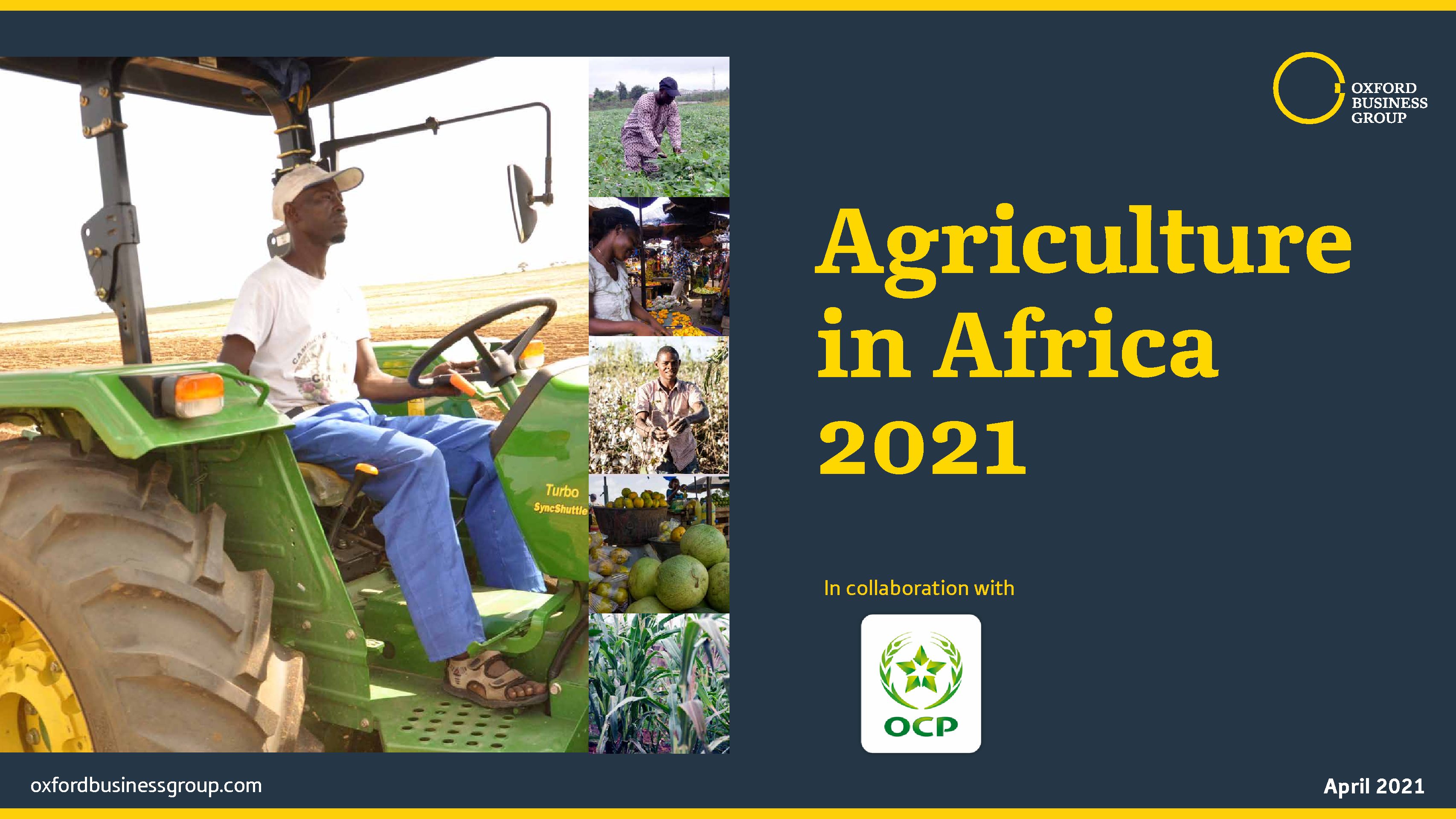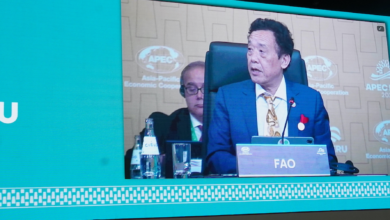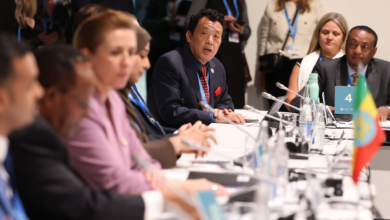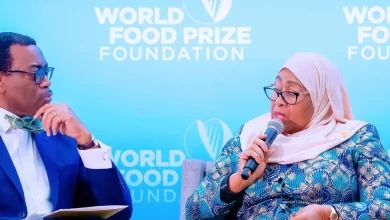Special Report on Agriculture in Africa 2021 (part 1)

By Bernardo Bruzzone, Africa Regional Editor, Oxford Business Group
Home to 60 per cent of the world’s arable land, the African continent has the potential not only to meet its own food needs, but also those of the rest of the world. Indeed, agriculture remains one of the most important economic sectors, accounting for 14% of total Gross Domestic Products (GDP) in sub-Saharan Africa, and employing the majority of the continent’s population.
The Focus Report: Agriculture in Africa 2021 outlines the region’s export potential, food security challenges and provides an overview of how the creation of the African Continental Free Trade Area, and increasing modernisation of agricultural processes provide significant growth opportunities across the entire ecosystem. The report also includes interviews with Mohamed Anouar Jamali, CEO, OCP Africa and with stakeholders from the agricultural sector such as ANADER and COCOBOD. The Focus Report: Agriculture in Africa 2021 was produced in partnership with OCP, following the successful launch of our previous Report: Agriculture in Africa 2019.
Recent Performance Indicators
For many countries across Africa, agriculture remains one of the most important sectors of the economy. Agriculture accounts for 14% of total GDP in sub-Saharan Africa, and a majority of the continent’s population is employed in the sector. In addition, export crops such as coffee, tobacco, oranges, fruit and cotton are important sources of foreign exchange for every country on the continent.
There are significant regional variations in the relative size of the agriculture sector, as well as its employed population, value-added and productivity. In lower-income, landlocked countries such as Chad, the relative size of the sector (over 50% of GDP) and the share of the population employed as subsistence farmers (over 75%) can far exceed the region’s average, while agricultural productivity and export earnings lag behind the continental mean.
In North and Southern Africa, improved irrigation and a high degree of mechanisation have ensured greater productivity in certain segments – far exceeding the regional average and on a par with Southeast Asia and Latin America. The relative importance of agriculture in wealthier places such as South Africa is lower, at 3% of GDP, according to the UN Food and Agriculture Organisation (FAO).
Overall, the relative size of the sector compared to the total economy has been gradually but steadily declining over the past decades. In 1990 agriculture accounted for one-fifth of the total GDP of sub-Saharan Africa, declining to 18% by 2000 and 15% in 2015. According to projections by the FAO, this figure will fall to 13% by 2029, even as agricultural trade and production are expected to increase over the same period. The percentage of the population employed in agriculture has undergone a similar development, with the World Bank estimating a drop from 62% in 1995 to 52% in 2020.
Nonetheless, Africa’s overall agricultural production and export figures have seen major improvements over the course of recent years. According to the “Africa Agriculture Status Report 2020” published by the Alliance for a Green Revolution in Africa (AGRA), cropland expansion and improved access to inputs such as fertilizer and higher-yielding seeds helped gross production value increase by 11% between 2010 and 2016. Looking further ahead, the FAO and the Organisation for Economic Co-operation and Development (OECD) anticipate a further increase of 21% in agricultural and fish production between 2020 and 2029 in sub-Saharan Africa.
Geography and Land Use
The continent is agro-ecologically and climatically diverse, with agro-environmental zones ranging from the tropical rainforests in West and Central Africa to the dry and arid zones of the Sahel. This diversity offers both opportunities and challenges: while a wide variety of crops and commodities can be produced across Africa, a range of different solutions are required in order to overcome the varying bottlenecks that continue to limit the agricultural potential of the different countries and regions on the continent.
Africa also has an abundance of arable land, much of which is uncultivated. The OECD and the FAO estimate that it accounts for 21% of pastoral land and 14% of cropland. While the latest figures from the World Bank show that as of 2016, 9% of all sub-Saharan African land was arable – an increase on the 5.7% recorded in 1980 – the FAO estimates that Africa holds 60% of the world’s uncultivated arable land.
One of the key factors perpetuating the relatively low levels of cultivated land is the challenge of obtaining access to land in the first place. Much of the arable and cultivated land remains unregistered, with the African Centre for Economic Transformation (ACET) estimating that just 10% of arable land on the continent is officially registered; this stands in stark contrast to 95% in Western Europe. In sub-Saharan Africa 90-95% of land falls under a customary tenure system, with large communal and unregistered ownership. In North Africa, by contrast, a majority (50-75%) of land is individually owned and registered under a modern tenure system.
As a consequence, disputes are common and expensive, with much of the judicial caseload in countries with predominantly customary systems stemming from conflicts over land ownership. The ACET estimates that in Ethiopia 33-50% of all legal cases are land dispute cases; in Ghana, such conflicts account for half of all new civil cases; and in Uganda land disputes represent about half of the total caseload, leading to an estimated 5-11% loss in agricultural production in the country.
Transactions involving registered land also remain costly in many markets across Africa. The World Bank’s “Doing Business 2016” report showed that the monetary cost and administrative burden of land transfer for registered land were significantly higher in sub-Saharan African nations than similar transfers conducted in OECD countries, taking an average of 58 days and costing 8% of the property value in sub-Saharan Africa – compared to an average of 22 days and 4% of property value in OECD countries. According to the most recent data available, sub-Saharan Africa has seen some improvement in property registration procedures, with transactions taking an average of 51.6 days as of May 2019, compared to 23.6 days in OECD economies.
Source: Oxford Business Group





